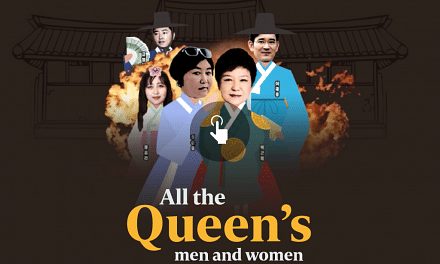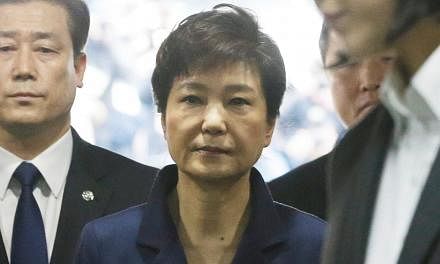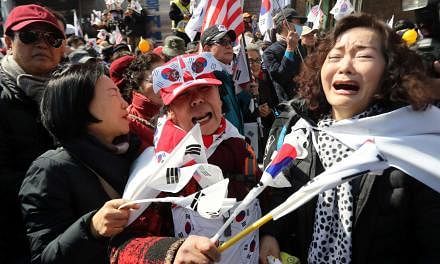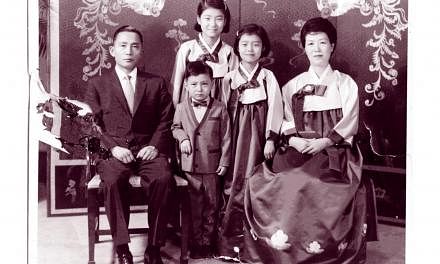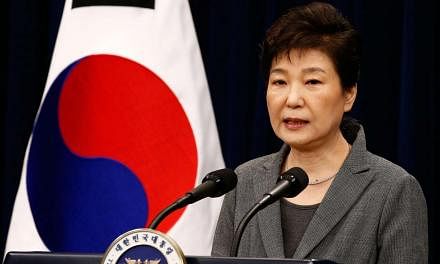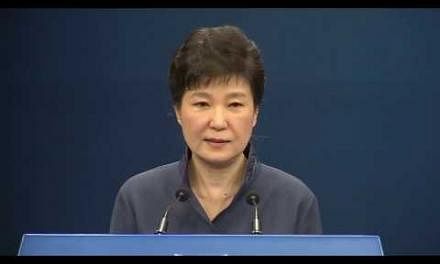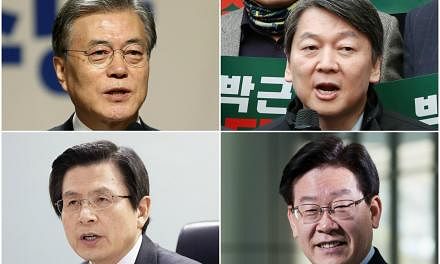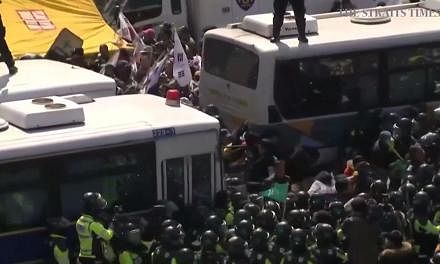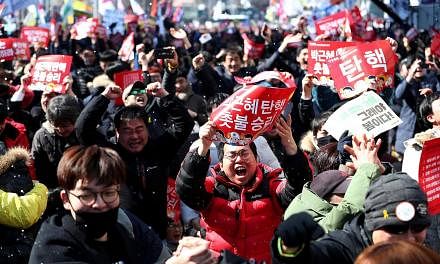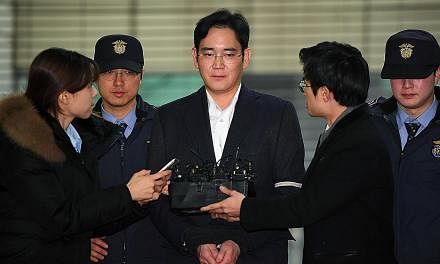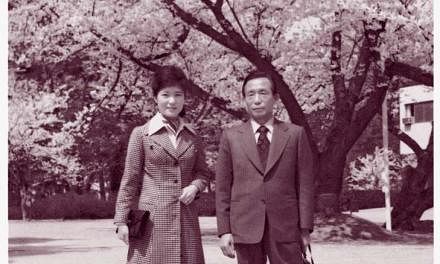In its editorial on Dec 9, the paper says presidential hopefuls' greed for power could prolong the current crisis
The National Assembly votes on the bill to impeach President Park Geun Hye today (Friday).
If it gets 200 or more votes, President Park Geun Hye will be suspended from her duties and the Constitutional Court will have up to 180 days before it makes a ruling on whether to finally remove her from Cheong Wa Dae (The Blue House - the official residence of the South Korean head of state) .
While Park's impeachment would mark a milestone in the political crisis caused by an influence-peddling scandal involving her civilian confidante, it has yet to be seen how the vote would affect the future course of the crisis that has been gripping the nation for almost two months.
If impeached by the National Assembly, Park would be the second president to face such a fate.
The late President Roh Moo Hyun was impeached in 2004 by opposition parties, which accused him of violating the election law and failing to prevent corruption among his associates.
The Constitutional Court overturned the parliamentary decision and reinstated Roh about two months later.
As seen by the court's decision, charges against Roh were more political accusations than serious offences.
Most citizens opposed Roh's impeachment, and voters who sympathised with Roh and the then ruling party gave them a resounding victory in the parliamentary election held one month after the parliamentary impeachment.
Ms Park's case is completely different.
Now a fair majority of Koreans want her to be impeached or resign voluntarily.
Her misdeeds were so serious that state prosecutors have determined that she is a "suspect and accomplice" in the scandal, in which her friend Choi Soon Sil, aides and associates allegedly conspired to extort money from conglomerates and take other personal gains.
Moreover, the ongoing parliamentary investigation and an impending separate probe by an independent counsel could uncover more wrongdoings committed by Park, Choi and their associates.
This is one of the reasons parliament's impeachment of Park could touch off a new set of political fights - instead of abating the turmoil and soothing public wrath - involving Park, the ruling and opposition parties and others.
One of the most pressing issues could be opposition members' demand that Park - if impeached - should still resign voluntarily.
Moon Jae In, the leading presidential hopeful of the main opposition Democratic Party of Korea, and Park Jie Won, floor leader of the People's Party, advocate this.
This argument, which obviously aims to ride the wave of the strong public antipathy against Park, itself could generate a fresh legal dispute over whether a parliament-sanctioned Park - while waiting for a final verdict by the top court - could step down from her post.
This dispute may be meaningless, however, as the ever-defiant, persevering Park will not likely resign voluntarily.
One can easily guess why Moon sticks to the demand despite criticism even from members of his own party: A voluntary resignation by Park would pave the way for a by-election within 60 days, while it could take several months for the top court to make its ruling.
In Roh's case, the court took 63 days before overturning the parliamentary impeachment.
Moon did not hide what he had in mind: The earlier the election, the higher his chances for winning it. "Don't worry. I'm fully prepared," he was quoted as saying when asked about possible problems with an early by-election.
Moon's impatience is understandable, especially in view of the remarkable recent surge of Seongnam Mayor Lee Jae Myung, whose approval ratings now threaten those of Moon.
It is no surprise that Moon's rivals like Lee and Seoul Mayor Park Won-soon do not support the idea of holding a "very early" by-election. They also demand that the Democratic Party adopt a new nomination rule in favour of reflecting a greater view of non-party members and mobile device users.
Things like this raise concern that opposition members - upbeat over the crisis, which has virtually annihilated the conservative ruling party - believe they are within reach of power.
By holding peaceful street protests that amazed the whole world, Koreans demonstrated the level of their patriotism and commitment to the rule of law and democratic values.
It is sad to see, yet again, that greedy politicians in this country have yet to catch up with the standards of the electorate.
----
The Korea Herald is a member of The Straits Times media partner Asia News Network, an alliance of 21 media.

